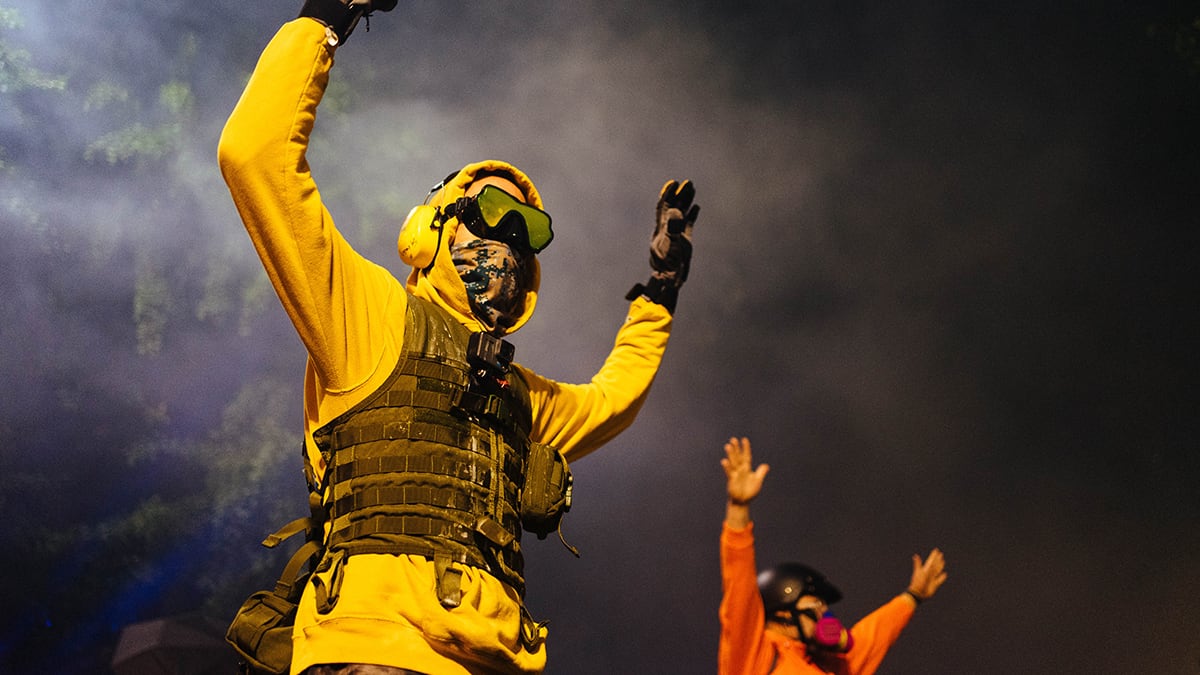In his first nationally printed comments addressing the protests in Portland, Police Chief Chuck Lovell advocated for meaningful change through peaceful action and denounced what he described as "violence" at Portland protests in an Aug. 3 op-ed in The New York Times.
"As police officers, our duty is to uphold the rights of anyone to assemble peacefully and engage in free speech," Lovell wrote. "But over the months of protests, a concerning dynamic developed. People protested peacefully, while others engaged in dangerous activities that could have resulted in injury and even death."
Lovell, who became police chief in June shortly after the uprising began, wrote that he supports protesters who want to use their First Amendment rights to denounce the unjust killing of George Floyd, as well as other Black Americans killed by police. But, he argued, quoting the Rev. E.D. Mondainé, Portland protests have become "spectacles."
Lovell argued that "violence and destruction" have been directed toward the Mark O. Hatfield federal courthouse—a sentiment carrying echoes of statements by President Donald Trump, who said he sent federal agents to protect the courthouse from protesters who are "totally out of control."
"This violence is doing nothing to further the Black Lives Matter movement," Lovell wrote. "On one night, for example, individuals screwed the doors of our North Precinct station shut, barricaded other entrances and lit the station on fire with people inside. Nearby businesses, owned by people of color, were damaged and looted."
His op-ed arrives at a pivotal moment, when federal troops have begun withdrawing from downtown Portland, potentially lowering conflict but also returning protesters' attention to local cops.
Today's op-ed is in line with Lovell's previous statements, in which he has distinguished between "peaceful" and "violent" protesters, and justified the use of CS gas against Portlanders.
"CS gas is uncomfortable, but effective at dispersing crowds. We would rather not use it. We would rather have those in the area follow the law and not engage in dangerous behavior," he said in July. "When tools are restricted that help us disperse crowds, the options are limited to batons or physical force."
Throughout the op-ed, he used the word "violence" six times to describe the actions of protesters. He did not ascribe any blame to his police officers, who have deployed tear gas nearly 100 times since late May.
Lovell drew attention to assaults and stabbings outside the courthouse and argued that protesters attempting to damage the building had created a dangerous environment.
"Shooting off commercial-grade fireworks and mortars is not peaceful protest," he wrote. "We are fortunate that no one has been killed."
Federal agents have alleged that at least two Portland protesters assaulted them with blunt objects—one with a hammer on July 11, and another with an explosive device on July 22.
Lovell also wrote that Portland police officers and their families have received threats from protesters. (WW has not yet independently verified this claim.)
"There are those who say the Portland police have not done enough to quell violence," Lovell wrote. "I ask them to come speak with our officers, who have been responding for two months to protests. They have served with professionalism, courage and resiliency through an extraordinary time. Many have been injured and some have received threats of violence to themselves or their families."

